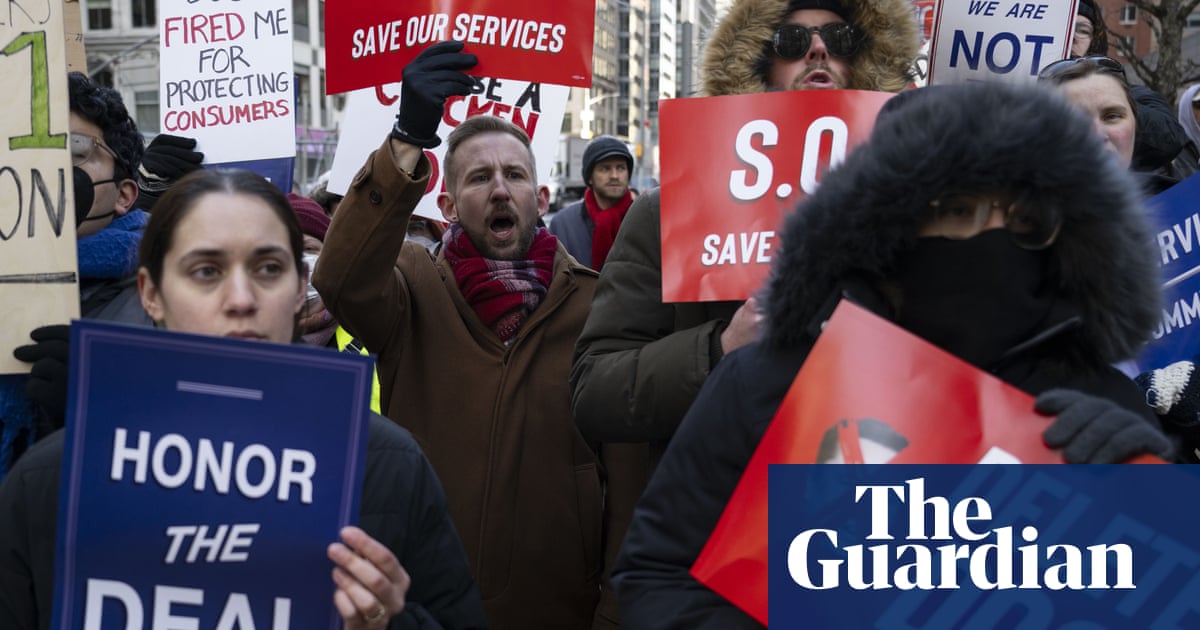Candidates for local office in Miami have been prepping mailers, gathering volunteers, raising money and hitting the street for the last year, with voters expecting to see a robust campaign to replace the city’s term-limited, scandal-chased mayor.
Last week, Miami’s city commission told those voters they’ll have to wait an extra year. In a 3-2 vote, the commission changed the city’s election bylaws to push the municipal races back to 2026.
Commissioners said they made the change in the name of cost savings and increased voter engagement when higher-profile races for Congress or the presidency may be on the ballot. But they gave themselves an extra year in office without asking voters for permission first. And in a moment when the underpinnings of democracy appear to be cracking in America, a cavalier attitude toward an election seems ominous to some Miami residents.
“What worries people about this is, we don’t want to give the guy in the White House any ideas,” said John Jackson, a Miami resident and former political operative. There’s no real mechanism to try something like this at the federal level, he said, “but it still kind of makes people a little worried. I don’t know anyone on any side of the aisle – Republican, Democrat, conservative, liberal – who just thinks that this was a good thing”.
Florida attorney general James Uthmeier sent Miami’s mayor a warning letter on 26 June, telling the city that the proposal to change election dates without asking permission from voters first violates the city and county’s charter and the state constitution.
Miami is home “to thousands of patriotic Cuban Americans who know better than most about regimes that cavalierly delay elections and prolong their terms in power”, Uthmeier wrote. “The City of Miami owes to its citizens what the law requires.”
City leaders could have avoided this problem by placing the question on the ballot and accepting a shorter term if voters chose to hold future elections on even-numbered years, said Michael Hepburn, a Miami mayoral candidate.
“The city of Miami is actually still scheduled to have a election this year for other ballot referendums,” Hepburn said. “So what they’re doing is actually just stupid, because you literally still gonna have people come out this year on November 4 and vote for, like, three other questions on the ballot.”
By structuring the change this way, however, it permits city commissioner Joe Carollo and Miami mayor Francis Suarez – both term-limited – to remain in office for an additional year.
Hepburn said he thinks Juarez wants to use the extra year to his advantage. “He’s started thinking about how he could stay in office and use his current office to parlay that into his next office. He may be running for governor next year. He may be running for US Congress. Who knows? But he’ll be able to do it from the office of mayor, which just helps him.”
Hepburn and other candidates have either filed lawsuits or are awaiting the actions of the attorney general in response to the ordinance change.
“The decision by city leaders to arbitrarily extend their terms by a full year without voter approval is exactly why so many are up in arms by the chaos and dysfunction of our city government,” said Eileen Higgins, a Miami-Dade county commissioner running to become the city’s next mayor.
Instead of extending current elected terms, Higgins said she would support shortening a new mayor’s term by one year and moving the election to 2028 to achieve optimal voter participation. “That’s why I believe moving forward with the planned elections this November should have been the only decision. More troubling, a run-off in December 2026 will only cost taxpayers more money and result in lower turnout than this year’s planned election.”
The mayor’s office did not respond to requests for comment.
“I support and encourage participation in the electoral process,” said city of Miami commissioner Christine King. “Voting is the single most important act one can do for their country and in this instance our community. In the city of Miami, voter turnout is historically low for odd numbered year elections. My vote in support of moving our elections to even numbered years was a vote for democracy.”
The argument for on-cycle elections makes sense to students of civic participation. Suarez defeated his challenger 21,479 to 3,166 in the 2021 off-year election. In a Miami referendum about residency requirements for the Miami mayor in 2024, with Donald Trump facing Kamala Harris as the marquee matchup at the top of the ballot, 127,460 people cast a vote, more than five times as many voters.
“The upshot is that on-cycle elections … are generally viewed as a win for democracy,” said Matthew Nelsen, an assistant political science professor at the University of Miami. “On-cycle elections ensure that the media attention and campaigning that comes along with a national midterm or presidential election will also trickle down into local races.”
Commissioner Damian Pardo, the author of the election change, argued that holding municipal elections on off years is a form of voter suppression. “The reason behind this is to boost voter participation,” he told local media. “When we realized we actually had potentially three votes to get this done, we moved forward. When we can take reform, we take it.”
Nonetheless, the commission chose not to let voters make this change.
“Ideally, the voters would have had the ability to vote on this,” Pardo said. “However, given the situation in this context, where we had the opportunity to pass it … in order to give the voters what they want, you might actually undermine them by putting it to a vote, because by the time that time lapses, you may no longer have those three votes.”
Two of the three commissioners who voted for the change – Pardo and King – are Democrats.
“If they can move it, why not the president?” said Marion Brown, a candidate challenging King in the election that the commission postponed. “Let the president move it, let the governor move it, let everyone in the election do the same thing.”
The third commissioner, Ralph Rosado, is a Republican, as is the mayor. Municipal elections are technically nonpartisan in Miami.
“Our county mayor is Democratic. Miami’s mayor is Republican. But none of that really matters, because politics is just weird here,” Jackson said. “To me, it was just entrenched politicians who said ‘well, gonna save money and we’re gonna raise turnout’. But the reality is, they’re term-limited, and now they get an extra term.”
Politics in Miami tends to protect a group of four or five politically-powerful families at the expense of the public interest, said Marisol Zenteno, president of the League of Women Voters of Miami-Dade.
“People are very irritated. They don’t trust in the system. They feel that it’s the same people manipulating it and that it’s pretty much the same people winning all the time,” she said. “Voters are just disillusioned.”

 German (DE)
German (DE)  English (US)
English (US)  Spanish (ES)
Spanish (ES)  French (FR)
French (FR)  Hindi (IN)
Hindi (IN)  Italian (IT)
Italian (IT)  Russian (RU)
Russian (RU)  6 hours ago
6 hours ago























Comments